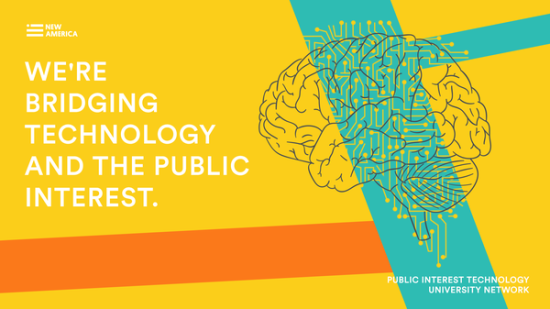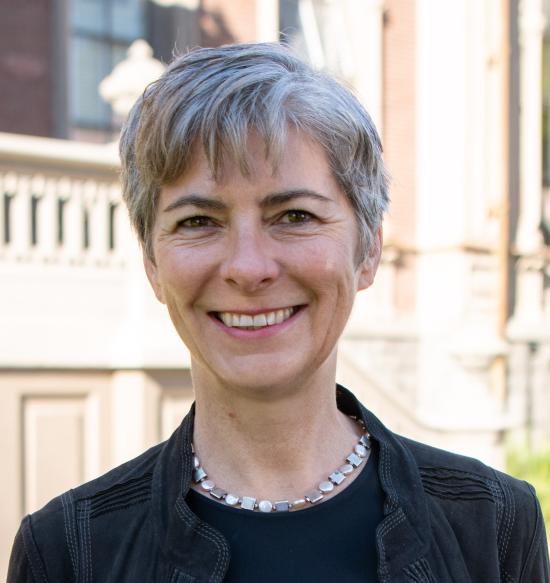Professors Deirdre Mulligan and Jenna Burrell have been awarded a $180,000 grant from the New America Public Interest for Technology Network to cultivate a pipeline for public interest technology scholars at UC Berkeley.
Public interest technology (PIT) refers to the study and application of technical expertise to advance the public interest in a way that generates public benefits and promotes the public good, particularly for those members of our society least well served historically and today by existing systems and policies. The Public Interest for Technology Network is a partnership that fosters collaboration among colleges and universities committed to building the nascent field of public interest technology and growing a new generation of civic-minded technologists. UC Berkeley joined 24 other colleges and universities across the country who received funding to continue their pathfinding work in the creation of this new field.
Unlike many career paths, there is no straight line into public interest tech work, as practitioners are often of cross-disciplinary fields: the social sciences, engineering, law, health care. Professors Mulligan and Burrell, who lead the Algorithmic Fairness and Opacity Working Group, hope to support career pathways and cohort development among undergraduates and junior scholars through service learning, critical reflection, workshops, and connections to scholars and practitioners in the field of algorithmic justice.
The grant will fund a series of hands-on workshops with academic partners Cal NERDS (NERDS stand for “New Experiences for Research and Diversity in Science”), and the D-Lab, as well as a lecture series, career pathways panels, and lunches.
“The D-Lab is pleased to partner with AFOG,” said Dr. Claudia von Vacano, the Executive Director of the D-Lab, which has been working on the professionalization of students and on diversity in data science since 2013. “As a scholar from various minoritized and marginalized groups, I feel passionate about strengthening these programs by building synergies between them.”
“Through hands-on workshops with our partners at Cal NERDS and the D-Lab, public lectures and lunch talks,” Professor Mulligan said, “we will grow students’ understanding and connections to the PIT field. By centering issues of justice — rather than technology or specific approaches and methods from STEM fields — this program will develop and train diverse students and scholars with the knowledge and skills to create, use, assess, and critique technologies in service of the public interest.”
Mulligan went on to say that AFOG is excited to collaborate with Cal NERDS and the D-Lab to support Public Interest Technology-minded undergrads from diverse backgrounds and disciplines in deepening their technical skills and exploring the social and political implications of algorithmic systems.
“Our work points to how important it is to make public interest technology a permanent and vital pathway in higher education,” said Anne-Marie Slaughter, President of New America. “Public interest technologists are at the forefront of societal change and progress, and our students are leading us toward a more prosperous, more just, and more collaborative future. Institutional members of the University Network are already making big changes in our world.”
About the PIT-UN
The Public Interest Technology University Network is a partnership of colleges and universities convened by New America, the Ford Foundation, and the Hewlett Foundation. The network and challenge grants are funded through the support of the Ford Foundation, Hewlett Foundation, Mastercard Impact Fund, with support from the Mastercard Center for Inclusive Growth, Patrick J. McGovern Foundation, The Raikes Foundation, Schmidt Futures, and The Siegel Family Endowment. The PIT-UN is dedicated to building the nascent field of public interest technology through curriculum development, faculty research opportunities, and experiential learning programs, in order to inspire a new generation of civic-minded technologists and policy leaders.
Learn more about PIT at UC Berkeley.












